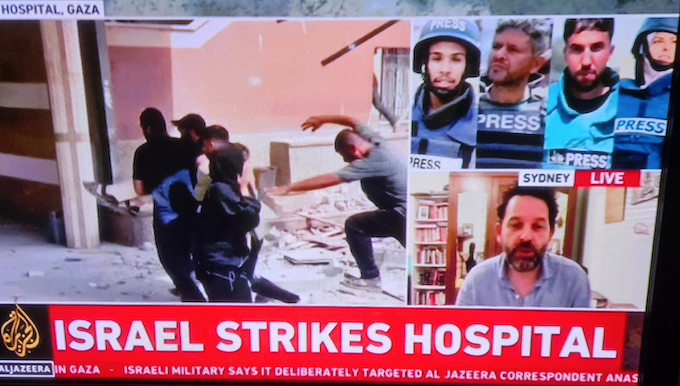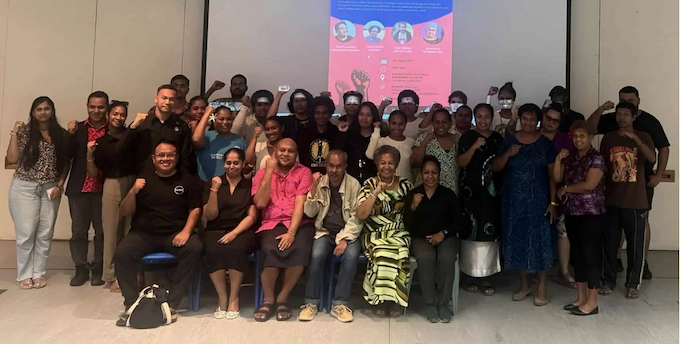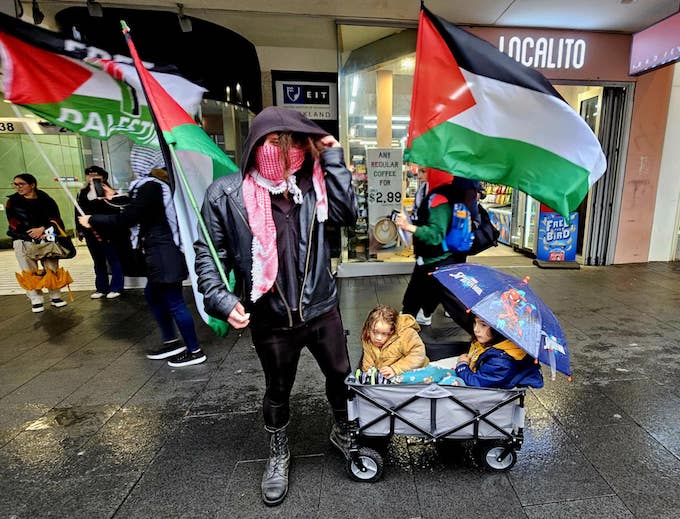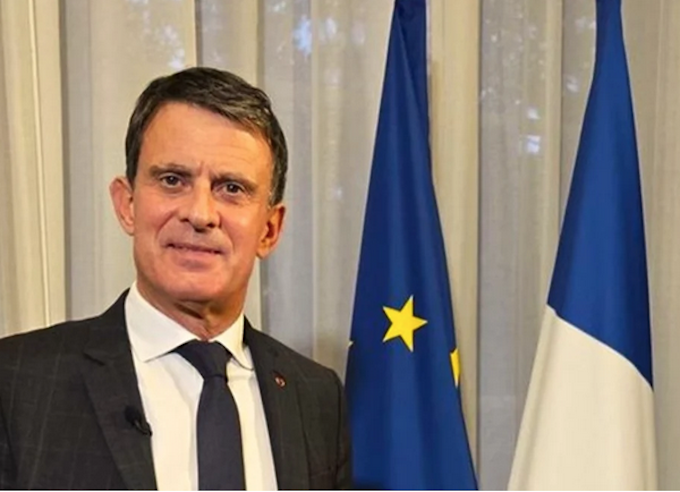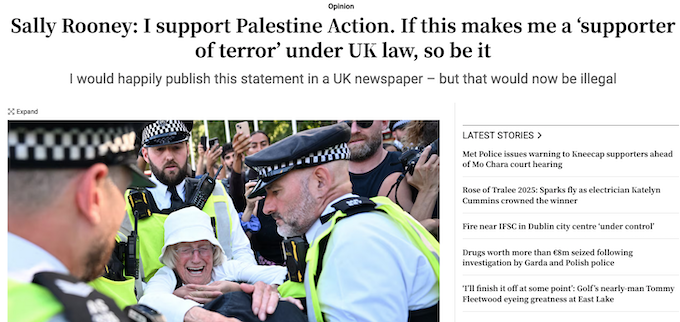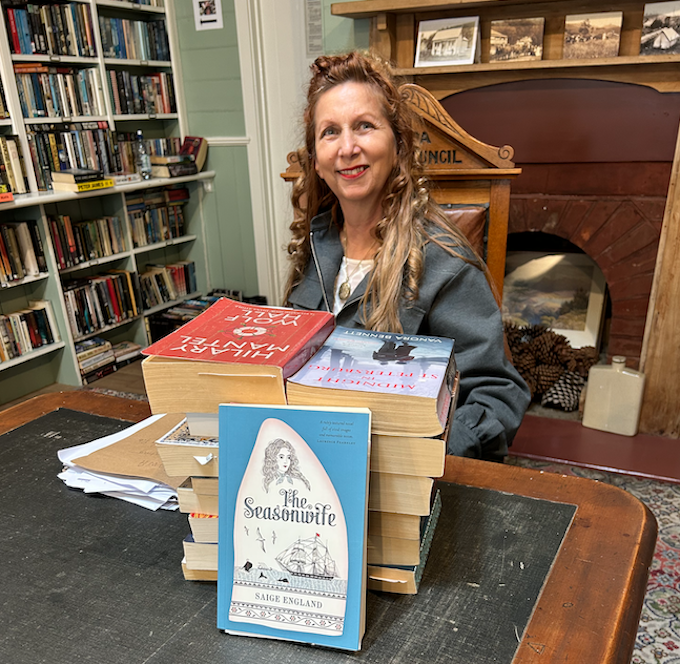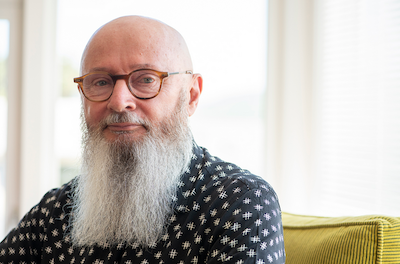ANALYSIS: By Gordon Campbell
The word “Gaza” is taking on similar connotations to what the word “Auschwitz” meant to a previous generation. It signifies a deliberate and systematic attempt to erase an entire people from history on the basis of their ethnic identity.
As a result, Israel is isolating itself as a pariah state on the world stage. This week alone has seen Israel target and kill four Al Jazeera journalists, just as it had executed eight Red Crescent medical staff and seven other first responders back in March, and then dumped their bodies in a mass grave.
Overall 186 journalists have died at the hands of the IDF since October 7, 2023, and at least 1400 medical staff as of May 2025.
On Monday night a five-year-old disabled child starved to death. Reportedly, he weighed only three kilograms when he died. Muhammad Zakaria Khudr was the 101st child among the 227 Palestinians now reported to have died from starvation.
Meanwhile, Prime Minister Christopher Luxon and Foreign Minister Winston Peters keep on saying that with regard to New Zealand recognising a Palestinian state, it is a matter of “Not if, but when.” Yet why is “ but not now” still their default position?
At this rate, a country that used to pride itself on its human rights record — New Zealand has never stopped bragging that this is where women won the right to vote, before they did anywhere else — will be among the last countries on earth to recognise Palestine’s right to exist.
What can we do? Some options:
- Boycott all Israeli goods and services;
- Engage with the local Palestinian community, and support their businesses, and cultural events;
- Donate financial support to Gaza. Here’s a reliable link to directy support pregnant Gaza women and their babies;
- Lobby your local MP, and Immigration Minister Erika Stanford — to prioritise the inclusion of hundreds of Gazans in our refugee programme, just as we did in the wake of the civil war in Syria, and earlier, in Sudan;
- Write and phone your local MP, and urge them to support economic sanctions against Israel. These sanctions should include a sporting and cultural boycott along the lines we pursued so successfully against apartheid South Africa
- Contact your KiwiSaver provider and let it be known that you will change providers if they invest in Israeli firms, or in the US, German and UK firms that supply the IDF with weapons and targeting systems. Contact the NZ Super Fund and urge them to divest along similar lines;
- Identify and picket any NZ firms that supply the US/Israeli war machines directly, or indirectly;
- Contact your local MP and urge him or her to support Chloe Swarbrick’s private member’s bill that would impose economic sanctions on the state of Israel for its unlawful occupation of the West Bank and Gaza. Swarbrick’s Bill is modelled on the existing Russian sanctions framework.If 61 MPs pledged support for Swarbrick’s Bill, it would not have to win a private members ballot before being debated in Parliament. Currently 21 MPs (the Greens and TPM) formally support it. If and when Labour’s 34 MPs come on board, this will still require another six MPs (from across the three coalition parties) to do the right thing. Goading MPs into doing the right thing got Swarbrick into a world of trouble this week. (Those wacky Greens. They’re such idealists.);
- We should all be lobbying our local MPs for a firm commitment that they will back the Swarbrick Bill. Portray it to them as being in the spirit of bi-partisanship, and as them supporting the several UN resolutions on the status of the occupied territories. And if they still baulk ask them flatly: if not, why not?
- Email/phone/write to the PM’s office, and ask him to call in the Israeli ambassador and personally express New Zealand’s repugnance at Israel’s inhumane actions in Gaza and on the West Bank. The PM should also be communicating in person New Zealand’s opposition to the recently announced Israeli plans for the annexation of Gaza City, and expansion of the war in Gaza.
- Write to your MP, to the PM, and to Foreign Minister Winston Peters urging them to recognise Palestinian statehood right now. Inquire as to what further information they may need before making that decision, and offer to supply it. We need to learn how to share our outrage; and
- Learn about the history of this issue, so that you convince friends and family to take similar actions.
Here’s a bare bones timeline of the main historical events.
This map showing (in white) the countries that are yet to recognise Palestinian statehood speaks volumes:
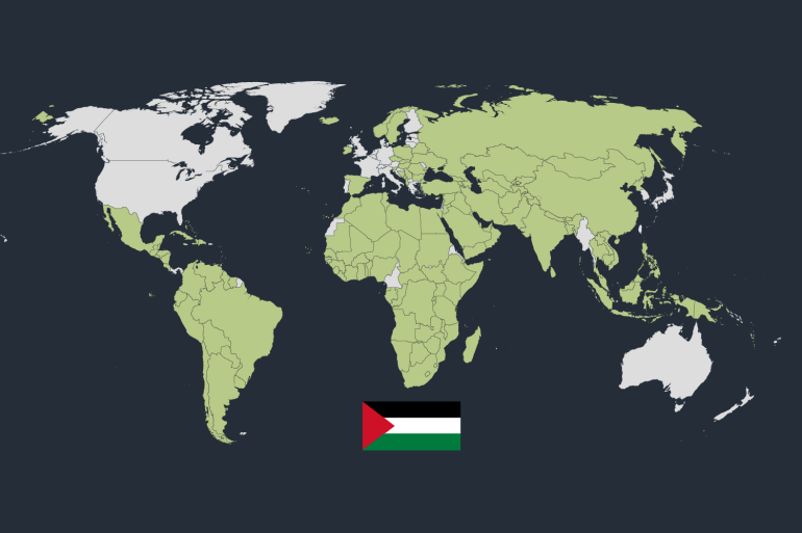
Those holdout nations in white tend to have been the chief enablers of Israel’s founding in 1948, a gesture of atonement driven by European guilt over the Holocaust.
This “homeland” for the Jews already had residents known to have had nothing to do with the Holocaust. Yet since 1948 the people of Palestine have been made to bear all of the bad consequences of the West’s purging of its collective guilt.
Conditional justice
The same indifference to the lives of Palestinians is evident in the belated steps towards supporting the right of Palestinians to self-determination. Even the recognition promised by the UK, Canada, France and Australia next month is decked out with further conditions that the Palestinians are being told they need to meet. No equivalent demands are being made of Israel, despite the atrocities it is committing in Gaza.
There’s nothing new about this. Historically, all of the concessions have been made by the Palestinians, starting with their original displacement. Some 30 years ago, the Palestine Liberation Organisation (PLO) formally recognised Israel’s right to exist. In response, Israel immediately expanded its settlements on Palestinian land, a flagrant breach of the commitments it made in the Oslo Accords, and in the Gaza-Jericho Agreement.
The West did nothing, said little. As the New York Times recently pointed out:
In a 1993 exchange of letters, the Palestine Liberation Organization’s chairman, Yasir Arafat, recognized the “right of the State of Israel to exist in peace and security” and committed the PLO to peaceful negotiations, renouncing terrorism and amending the Palestinian charter to reflect these commitments. In return, Israel would merely recognize the PLO as the representative of the Palestinian people — and only “in light of” Mr Arafat’s commitments. Palestinian sovereignty remained remote; Israeli occupation continued apace.
This double standard persists:
This fundamental unfairness has informed every diplomatic effort since. The rump Palestinian government built the limited institutions it was permitted under the Oslo Accords, co-operated with Israeli security forces and voiced support for a peace process that had long been undermined by Israel. Led by then-Prime Minister Salam Fayyad, the Palestinian Authority’s statehood campaign in the 2000s was entirely based on playing the game according to rules set by Israel and the Western-dominated international community. Yet recognition remained stalled, the United States blocked Palestine’s full membership in the United Nations — and still, no conditions were placed on the occupying power.
That’s where we’re still at. Luxon, Peters and David Seymour are demanding more concessions from the Palestinians. They keep strongly denouncing the Hamas October 7 atrocities — which is valid — while weakly urging Israel to abide by the international laws and conventions that Israel repeatedly breaches.
When a state deploys famine as a strategic weapon, doesn’t it deserve to be condemned, up front and personal?
Instead, the language that New Zealand uses to address Israel’s crimes is almost invariably, and selectively, passive. Terrible things are “happening” in Gaza and they must “stop.” Children, mysteriously, are “starving.” This is “intolerable.”
It is as if there is no human agent, and no state power responsible for these outcomes. Things are just somehow “happening” and they must somehow “cease.” Enough is enough, cries Peters, while carefully choosing not to name names, beyond Hamas.
Meanwhile, Israel has announced its plans to expand the war, even though 600 Israeli ex-officials (some of them from Shin Bet, Israel’s equivalent to the SIS) have publicly said that Hamas no longer poses a strategic threat to Israel.
As mentioned, Israel is publicly discussing its plans for Gaza’s “voluntary emigration” and for the permanent annexation of the West Bank. Even when urged to do so by Christopher Luxon, it seems that Israel is not actually complying with international law, and is not fulfilling its legal obligations as an occupying power. Has anyone told Luxon about this yet?
Two state fantasy, one state reality
At one level, continuing to call for a “two state” solution is absurd, given that the Knesset formally rejected the proposal a year ago. More than once, Israeli PM Benjamin Netanyahu has publicly denounced it while also laying Israel’s claim to all of the land west of Jordan, which would include the West Bank and Gaza.
Evidently, the slogan “ from the river to sea” is only a terrorist slogan when Hamas uses it. Yet the phrase originated as a Likud slogan.Moreover, the West evidently thinks it is quite OK for Netanyahu to publicly call for Israeli hegemony from the Jordan River to the Mediterranean Sea.
Basic rule of diplomacy: bad is what they do, good is what we do, and we have always been on Team Israel.
Over the course of the three decades since the Oslo Accords were signed, the West has kept on advocating for a two state solution, while acting as if only one of those states has a right to exist. On what land do Luxon and Peters think that a viable Palestinian state can be built?
One pre-condition for Palestinian statehood that Luxon cited to RNZ last week required Israel to be “not undermining the territorial integrity that would then undermine the two state solution.” Really? Does Luxon not realise that this is exactly what Israel has been doing for the past 30 years?
Talking of which . . . are Luxon and Peters genuinely expecting Israel to retreat to the 1967 borders? That land was agreed at Oslo and mandated by the UN as the territory needed for a viable Palestinian state. Yet on the relatively small area of the West Bank alone, 3.4 million Palestinians currently subsist on disconnected patches of land under occupation amid extreme settler violence, while contending with 614 Israeli checkpoints and other administrative obstacles impeding their free movement.
Here’s what the land left to the Palestinians looks like today:
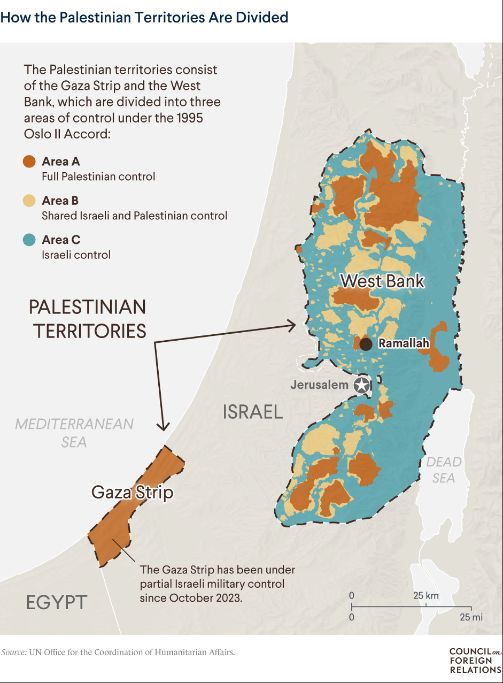
A brief backgrounder on Areas A, B and C and how they operate can be found here. Obviously, this situation cannot be the template for a viable Palestinian state.
What is the point?
You might well ask . . . in the light of the above, what is the point of recognising Palestine as a state? Given the realities on the ground, it can only be a symbolic gesture. The reversion to the 1967 borders (a necessary step towards a Palestinian state) can happen only if the US agreed to push Israel in that direction by withholding funds and weaponry.
That’s very hard to imagine. The hypocrisy of the Western nations on this issue is breath-taking. The US and Germany continue to be Israel’s main foreign suppliers of weapons and targeting systems. Under Keir Starmer’s leadership as well, the UK sales of military equipment to Israel have sharply increased.
New export licensing figures show that the UK approved licenses for £127.6 million worth of military equipment to Israel in single issue licenses between October to December 2024. This is a massive increase, with the figure in this three-month period totaling more than 2020-2023 combined.
Thanks to an explicitly enacted legal exemption, the UK also continues to supply parts for Israel’s F-35 jets.
UK industry makes 15% of every F-35 in contracts [estimated] to be worth at least £500 million since 2016, and [this] is the most significant part of the UK arms industry [relationship]with Israel . . . at least 79 companies [are] involved in manufacturing components.
These are the same F-35 war planes that the IDF has used to drop 2000 pound bombs on densely populated residential neighbourhoods in Gaza. Starmer cannot credibly pose as a man of peace.
So again . . . what exactly is the point of recognising Palestine as a state? No doubt, it would boost Palestinian morale if some major Western powers finally conceded that Palestine has a right to exist. In that narrow sense, recognition would correct a historical injustice.
There is also optimistic talk that formal Palestinian statehood would isolate the US on the Security Council (Trump would probably wear that as a badge of honour) and would make Israel more accountable under humanitarian law. As if.
Theoretically, a recognition of statehood would also enable people in New Zealand and elsewhere to apply pressure to their governments to forthrightly condemn and sanction Israel for its crimes against a fellow UN member state. None of this, however, is likely to change the reality on the ground, or prevent the calls for Israel’s “accountability” and for its “compliance with international law” from ringing hollow.
As the NYT also says:
After almost two years of severe access restrictions and the dismantling of the UN-led aid system in favour of a militarised food distribution that has left more than 1300 Palestinians dead, [now 1838 dead at these “aid centres” since late May, as of yesterday] . . . The 15 nations [at a UN meeting in late July that signed a declaration on Gaza] still would not collectively say “Israel is responsible for starvation in Gaza”. If they cannot name the problem, they can hardly hope to resolve it.
In sum . . . the world may talk the talk of Palestinian statehood being a matter of “not if, but when” and witter on about the “irreversible steps” being taken toward statehood, and finally — somewhere over the rainbow — towards a two state solution. Faint chance:
“For those who are starving today, the only irreversible step is death. Until statehood recognition brings action — arms embargoes, sanctions, enforcement of international law — it will remain a largely empty promise that serves primarily to distract from Western complicity in Gaza’s destruction.
Exactly. Behind the words of concern are the actions of complicity. The people of Gaza do not have time to wait for symbolic actions, or for sanctions to weaken Israel’s appetite for genocide. Consider this option: would New Zealand support an intervention in Gaza by a UN-led international force to save Gaza’s dwindling population, and to ensure that international humanitarian law is respected, however belatedly?
Would we be willing to commit troops to such a force if asked to do so by the UN Secretary-General? That is what is now needed.
Footnote One: On Gaza, the Luxon government has a high tolerance for double standards and Catch 22 conditions. We are insisting that the Palestinians must release the remaining hostages unconditionally, lay down their arms and de-militarise the occupied territories. Yet we are applying no similar pre-conditions on Israel to withdraw, de-militarise the same space, release all their Palestinian prisoners, allow the unrestricted distribution of food and medical supplies, and negotiate a sustainable peace.
Understandably, Hamas has tied the release of the remaining hostages to the Israeli cessation of their onslaught, to unfettered aid distribution, and to a long-term commitment to Palestinian self-rule. Otherwise, once the Israeli hostages are home, there would be nothing to stop Israel from renewing the genocide.
We are also demanding that Hamas be excluded from any future governing arrangement in Gaza, but – simultaneously – Peters told the House recently that this governing arrangement must also be “representative.” Catch 22. “Representative” democracy it seems, means voting for the people pre-selected by the West. Again, no matching demands have been made of Israel with respect to its role in the future governance of Gaza, or about its obligation to rebuild what it has criminally destroyed.
Footnote Two: There is only one rational explanation for why New Zealand is currently holding back from joining the UK, Canada, France and Australia in voting next month to recognise Palestine as a full UN member state. It seems we are cravenly hoping that Australia’s stance will be viewed with such disfavour by Donald Trump that he will punish Canberra by lifting its tariff rate from 10%, thereby erasing the 5% advantage that Australia currently enjoys oven us in the US market.
At least this tells us what the selling price is for our “independent” foreign policy. We’re prepared to sell it out to the Americans – and sell out the Palestinians in the process – if, by sitting on the fence for now, we can engineer parity for our exports with Australia in US markets. ANZAC mates, forever.
This post was originally published on Asia Pacific Report.
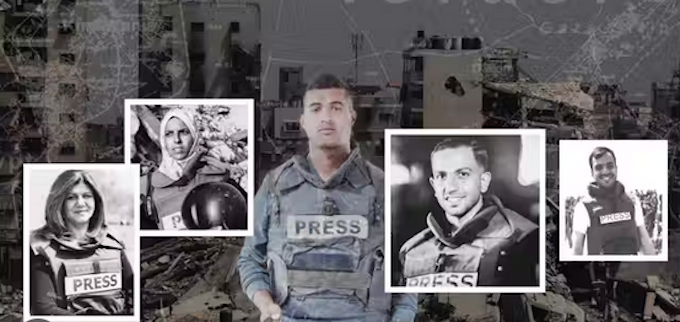



 Why NZ Prime Minister Luxon got it wrong. Video: RNZ
Why NZ Prime Minister Luxon got it wrong. Video: RNZ Mapping the success of Zionist ethnic cleansing of Palestine.
Mapping the success of Zionist ethnic cleansing of Palestine.
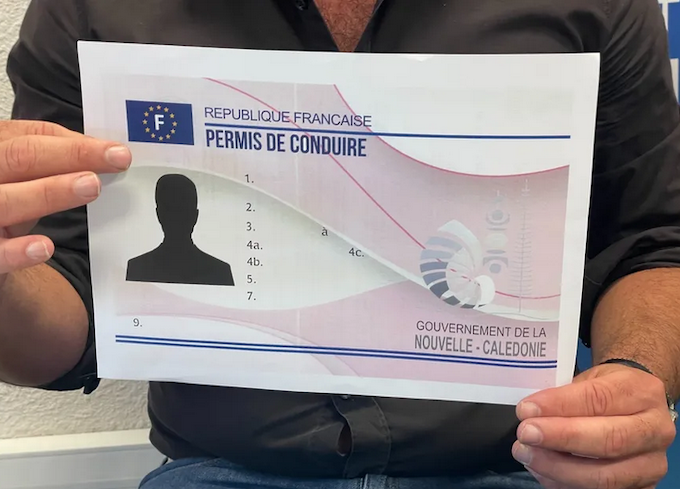




 BREAKING
BREAKING Break the blockade
Break the blockade